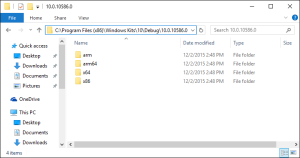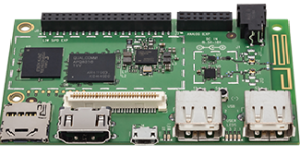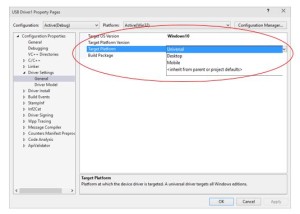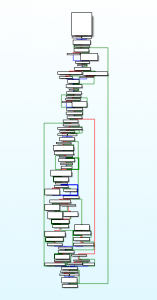While installing an entire checked build has always been a pain, a Partial Checked Build gives you the majority of the benefit without all of the hassle. For a long while now the WDK has shipped with the checked kernel and HAL from the corresponding Windows release, which made it even easier to get your code running […]
Another Tiny SBC that Runs Windows
If you follow the goings-on in the world of little single board computers (SBCs), you surely noticed last week’s announcement by Qualcomm of the DragonBoard 410C. This ARM-based board includes a 64-bit capable Snapdragon 410 processor, 1GB LPDDR3, and 4GB of eMMC memory. There’s an onb-ard MicroSD slot. It has Bluetooth LE, GPS, and WiFi […]
Windows Everywhere… and Your Driver Too: Universal Drivers
Windows 8 ushered-in a new era of Windows mobile devices, including phones and tablets. Windows 10 promises to converge these systems further, and to extend Windows to even more resource and cost constrained devices and the Internet of Things (IoT). Support for x86 and ARM will span all these categories. It seems we really are on the […]
Kx Headers in the Windows 8.1 WDK
It’s commonly known that the Windows Kernel uses two standard function prefixes to differentiate externally callable functions (Ke) from private, or internal, functions (Ki). There is, however, a third prefix used in the Kernel that isn’t quite as common: Kx. This prefix is used for internal functions that are processor architecture specific. For example, KxFlushEntireTb […]
Is DMA Cache Coherent on ARM?
On NTDEV we had an interesting discussion about interlocked operations, which, being an NTDEV discussion, took many twists and turns along the way. Out of all the various tangents that occurred, one stuck out to me as it’s something that was worth highlighting: who is responsible for guaranteeing cache coherency of DMA operations on Windows? For example, imagine a […]




